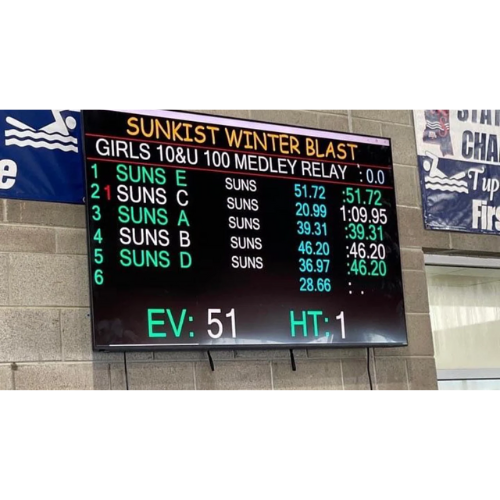- The Swimnerd Newsletter
- Posts
- How to Perform Under Pressure with Steve Magness
How to Perform Under Pressure with Steve Magness
"Being #1 at 12 is not the goal." - Steve Magness
Help preserve our sport's history by becoming a monthly donor to the International Swimming Hall of Fame like us.
Steve Magness is one of my favorite follows on X. He’s from the running world and went from athlete to coach to best selling author of Do Hard Things, Peak Performance, and his newest book, Win the Inside Game - developing the mental skills to handle pressure, push limits, and achieve consistency.
Follow him on Instagram and Twitter for his daily thoughts and insights. He just started making some great YouTube videos on specific topics, many endurance training related. So check him out on YouTube, as well.
Key Takeaways
Your Brain Controls How Far You Can Go
Steve explains that while physical training is essential, it’s ultimately the brain that decides how much effort you can give.
The Gas Gauge Analogy: Fatigue is like a gas light in a car - it warns you long before you’re actually “empty.” Your brain is protecting you, but with the right mindset, you can push further.
Stop Forcing It - Effort Should Be “Soft” not “Loud”
One of the most counterintuitive lessons from Steve is that trying too hard can hold you back. Athletes often tighten up under pressure, which reduces efficiency and performance.
The Mental Trick: Instead of forcing effort, focus on small, deliberate adjustments - range of motion, rhythm, and form.
Pressure and Expectations Can Break You (If You Let Them)
Brett shares his own story of swimming at the 2004 Olympic Games, where he unexpectedly swam his fastest time in the semifinals after “letting go” of the pressure. But in the final, heightened expectations got in the way.
Steve explains how athletes can handle this:
Accept that pressure is natural and can’t be avoided.
Reframe the moment as a challenge, not a threat.
Focus on one actionable goal instead of the big picture to stay grounded.
Comparison Is Killing Young Athletes
Steve and Brett discuss one of the biggest challenges in youth sports today: over-comparison and unrealistic expectations.
Parents and athletes fixate on rankings, often prioritizing short-term success over long-term growth.
The Truth: Being #1 at 12 years old means nothing. Everyone has their own performance path and it is important to understand that.
Recovery Matters - Including Mentally
Mental fatigue can be just as limiting as physical fatigue. Steve emphasizes the importance of mental recovery to avoid burnout.
Even small mental tasks - like solving math problems - can impair physical performance.
Another study found that getting on the bus after a game and doom scrolling social media produces negative recovery markers. Going out to eat as a team, does the opposite.
Enjoy!
Catch the Full Episode:
We’ve got the entire crew back together today - Brett, Nate, Sonny, Megsy, and Kurt - to talk about swimming. Join us this morning at 10 AM EST!





